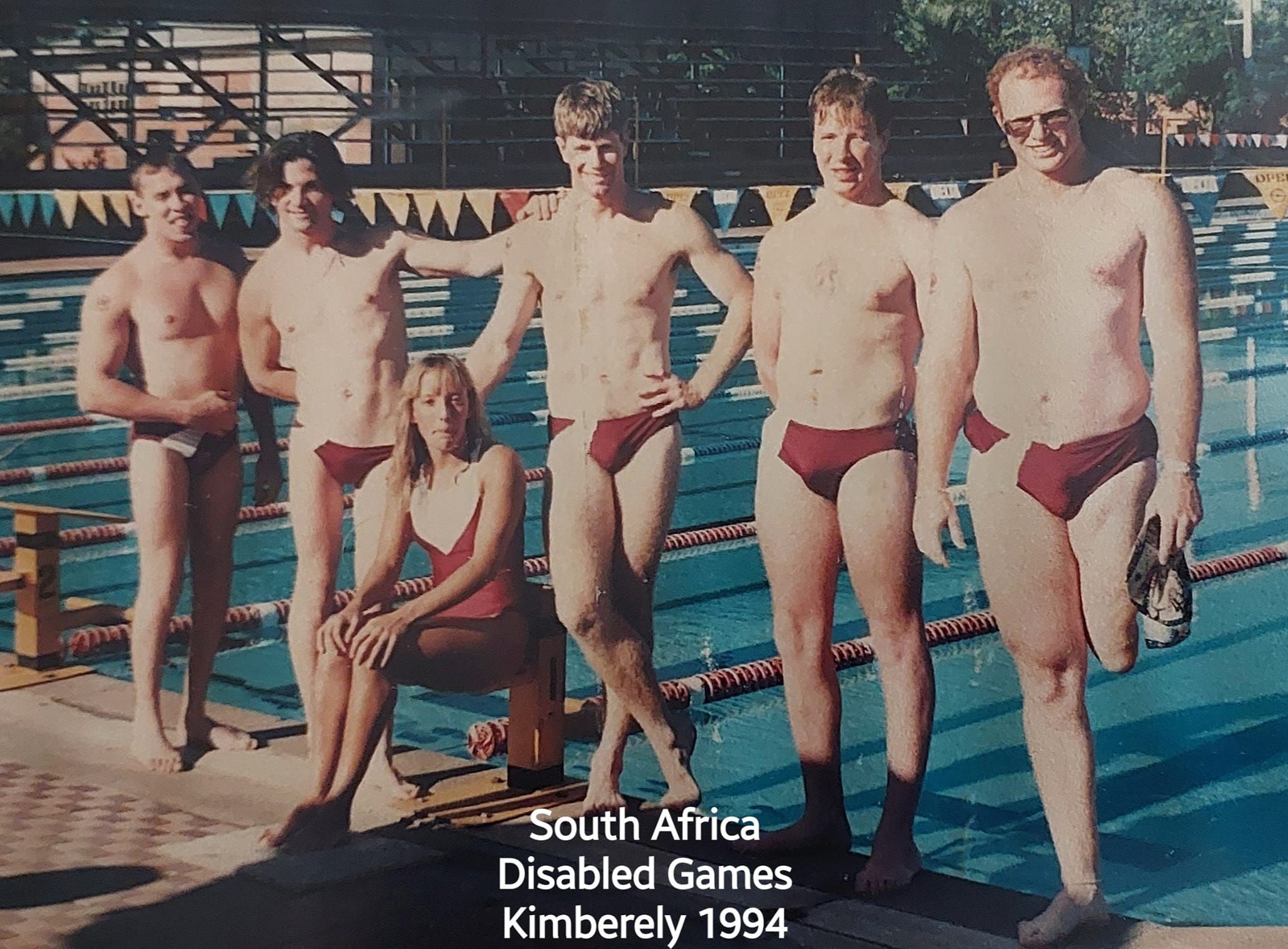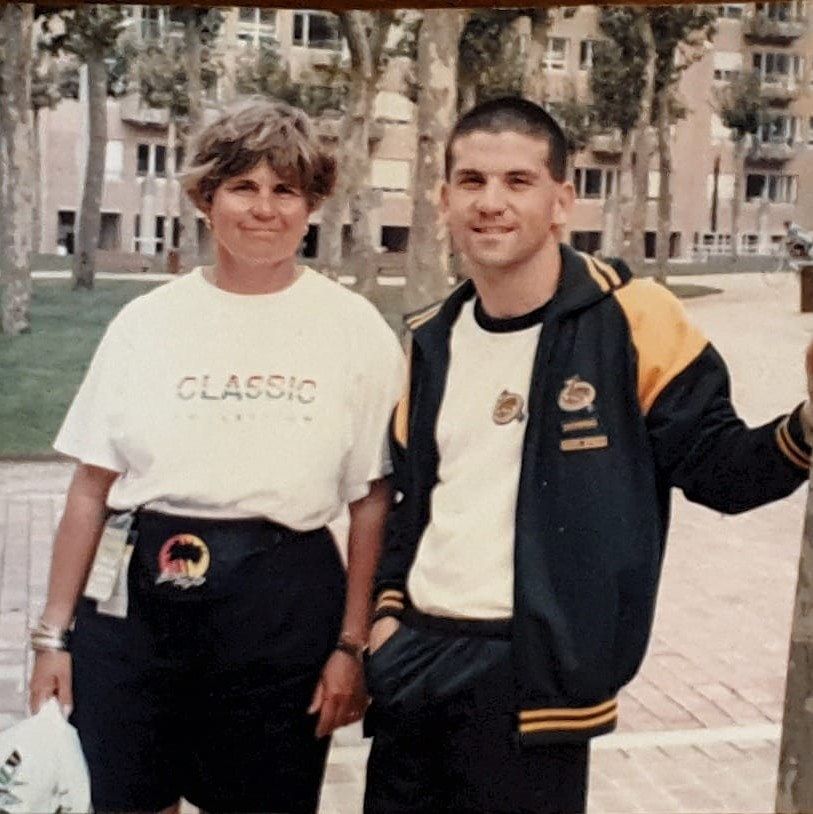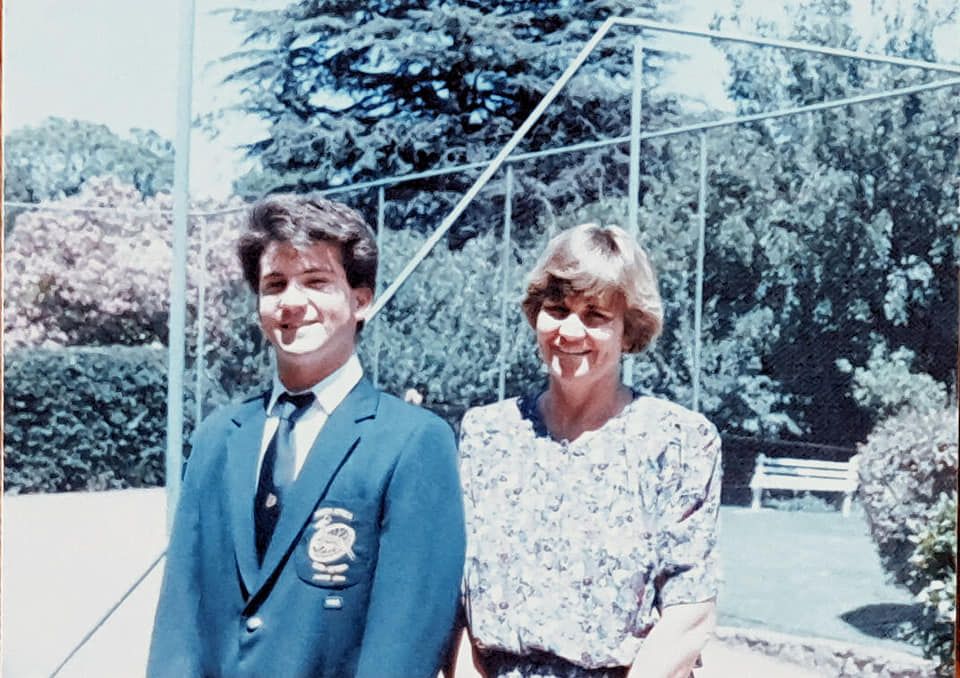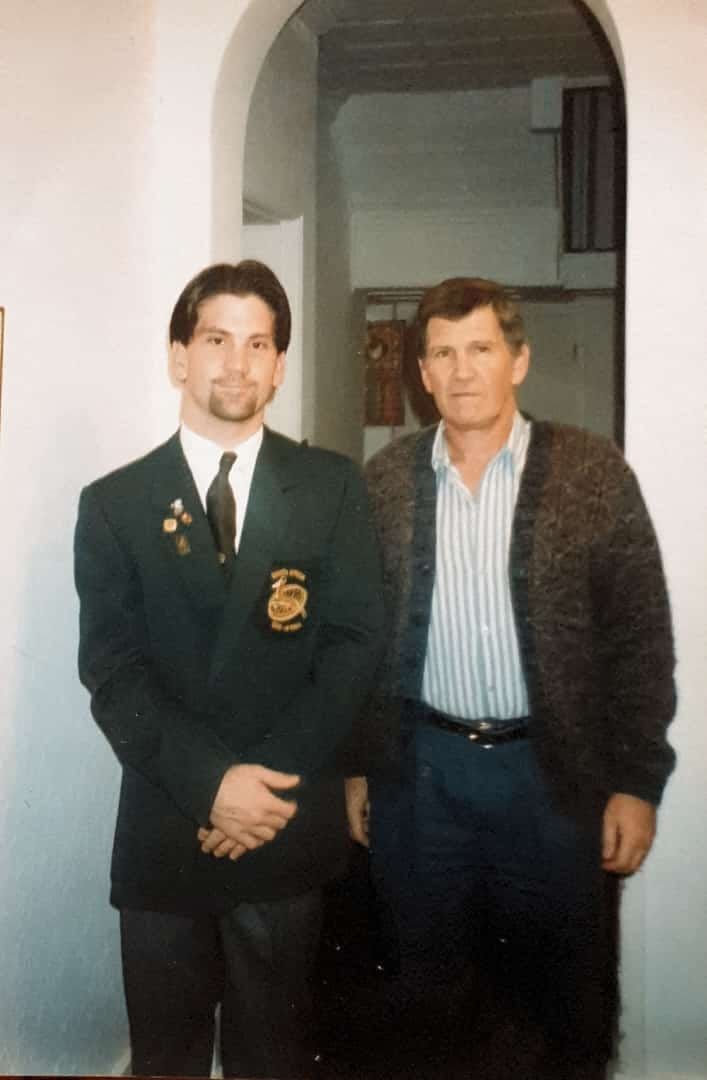Tadhg Slattery
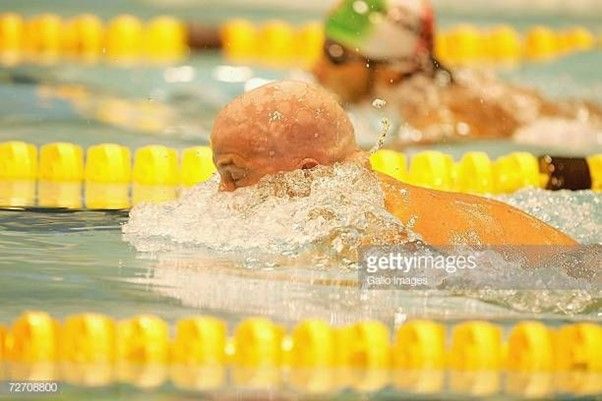
Tadhg is from Johannesburg, where he swam with coaches Dean Price and his brother Greg Price. He competed as part of the South African Paralympic swimming team at six Paralympic games.
His first games in 1992 gave him his first Paralympic gold medal in the 100m breaststroke in a world record time as well as finishing fourth in his heat in the 50m freestyle, eighth in the final of the 50m butterfly, seventh in his heat of both the 100m and 400m freestyle.
In the 1996 Summer Paralympics he finished second in the 100m breaststroke behind Kasper Engel of the Netherlands who set a new world record, he also competed in the 50m freestyle finishing 28th in the heats, 50m butterfly where he finished ninth in the heats just missing the final and finished fourth in the final of the 200m medley.
At his third games in 2000 he again won silver in the 100m breaststroke behind Kasper and added a second in the 200m medley behind the new world record set by Sascha Kindred of Great Britain, as well as finishing seventh in the 50m butterfly.
Tadhg won gold again in 2004 Summer Paralympic Games in the 100m breaststroke, beating his old rival Kasper Engel he also competed in the 200m medley finishing sixth but could not make the final of the 50m butterfly.
His fifth Games in 2008 led to his first bronze medal, in his favoured 100m breaststroke and finished last in his heat in the 200m individual Medley.
And his final sixth Paralympic Games in 2012 led to his fifth place. He is now retired from international swimming. He loves water and has been swimming for 37 years. He is now a full-time swimming coach for the disabled at the Mandeville Swimming Club in Johannesburg
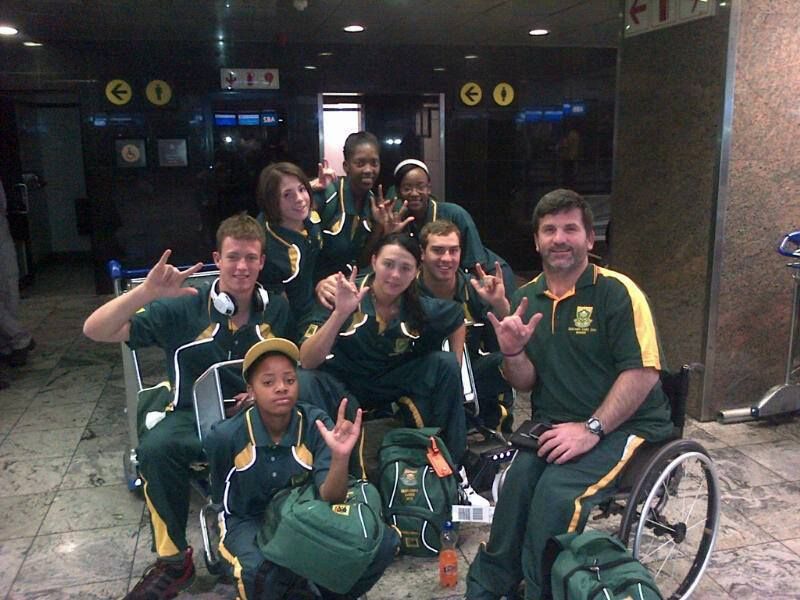
2013 Bulgaria Deaflypics Tadhg as a coach on the right.
Slattery to carry SA flag
16 September 2008
Tadhg Slattery will carry the flag for South Africa in Wednesday’s closing ceremony of the Paralympic Games in Beijing.
The 34-year-old veteran of five Paralympics won a bronze medal in the 100m breaststroke in Beijing, and celebrated it as if he had won in a world record.
But what was significant - and instrumental in his selection as the flag-bearer - was a comment by Natalie du Toit soon after he won the medal.
She called Slattery "the heart and soul of the team", and many other athletes referred to the man who is deaf and has cerebral palsy as someone who constantly lifted the spirits of the team during an arduous 11-day campaign at the games.
He developed a reputation for outlandish hairstyles during previous Paralympics, but this time, he went the shaven-headed route - perhaps to save on the weight of a swimming cap.
He is a former world-record holder in his SB5 category, with the 1:32.14 he set in 2002.
He announced his retirement after both the Sydney and the Athens Paralympics, but was back for more in Beijing, and has been honoured for his contribution to the Paralympic movement in South African as well as to the success of the team at the Beijing Games.
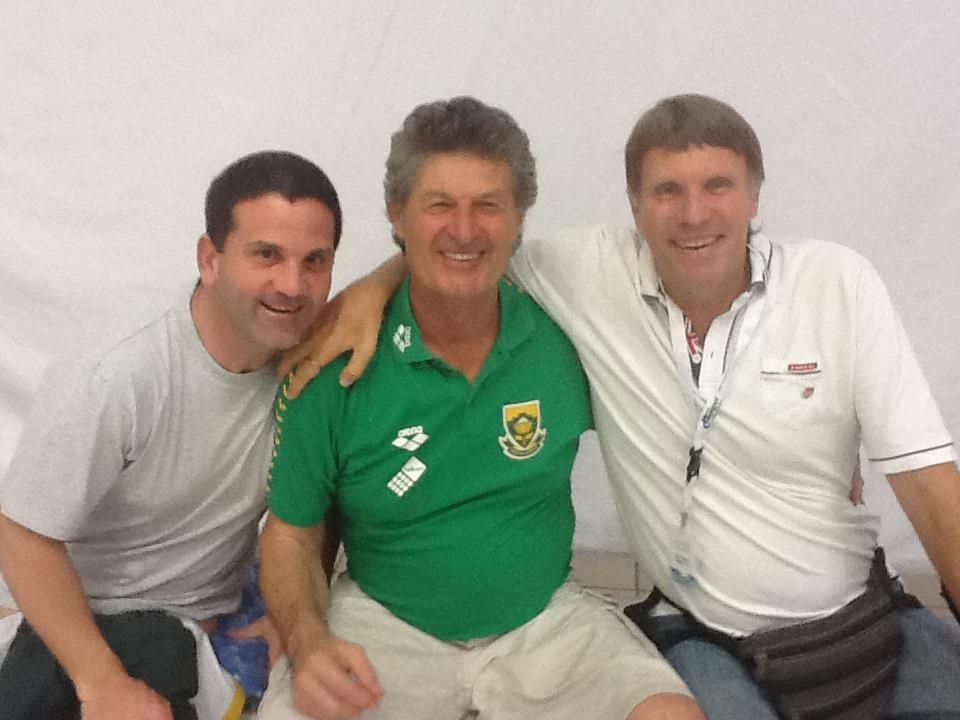
South African swimming coaches Tadhg Slattery, Karoly von Törös and Dean Price.
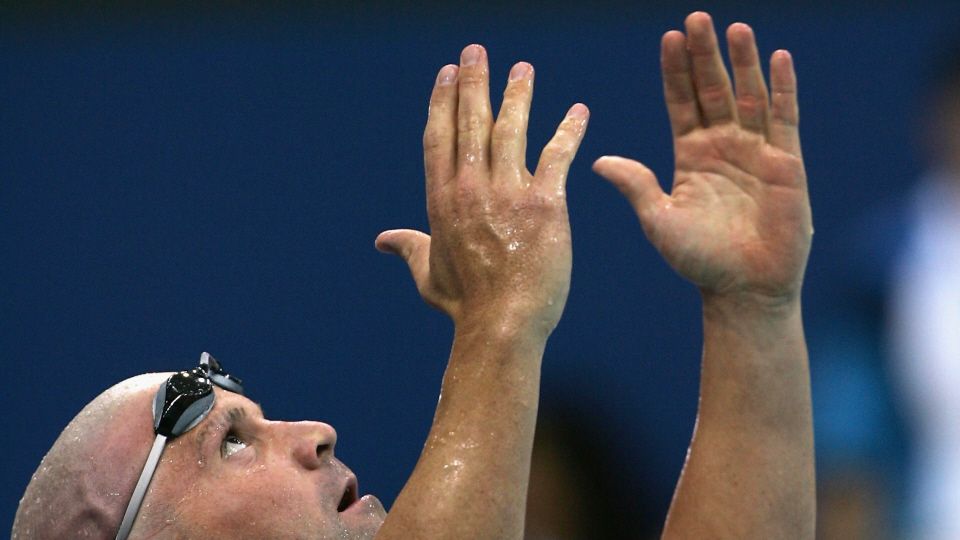
Swimmers Step up to the Plate
Welcome to the first in a series of articles, written by Champion South African Swimmers. Our first columnist is Tadhg (pronounced Tie) Slattery, a medallist and veteran of five Paralympic games. This incredible young man has overcome Cerebral Palsy and deafness and will be a regular contributor during 2009, keeping our readers up to speed on the strokes and dives of swimming in South Africa.
I love to swim! The first time I got into a pool was when I was 3 years old. I had a tube around me to help me float. It was good exercise and movement for my Cerebral Palsy.We left Durban in ‘77 and moved to Johannesburg where I attended St. Vincent’s School for the Deaf and Mrs Cuthbert taught me how to swim. I was 7 years old. Miss Long would swim with me and help me to swim in the deep pool as I was so scared of the deep water.
In my first gala at St. Vincent’s I competed against deaf able-bodied swimmers. I can’t remember where I finished but I know I didn’t come last! I was surprised when they announced me the winner of The Most Improved Swimmer trophy. I never expected to win my first trophy when I was only 9 years old.
My brothers, Michael and Fergus, did their swimming training at Wanderers Club under coach George Jacobson (now living in Canada). I wanted to be like them. They won quite lots of medals. My brothers were involved in lots of different sports. I wanted to be like them. I didn’t think that I was disabled. I told my mom and dad that I wanted training. I wanted to earn lots of medals too. I wanted to do soccer, cricket, tennis and gymnastics.
When I was 9 years old, my mom asked George Jacobson, if I could train with him at Wanderers Club. I was so thrilled to join his club, I was so happy to be like my two brothers. George’s office walls were covered with pictures of Olympic medallists. I would gaze at the pictures and dream of one day becoming an Olympic swimmer. When I was 11 my mom took me to Hope School. I met some disabled swimmers and finally realized that I am disabled. Mrs Alta Crous classified me according to which disability class I should be swimming in.
Within a year I qualified for the South Africa Junior Championship and went to Pretoria representing Southern Transvaal. I won 5 medals! In the 25m Breast, I won gold and broke my first South African record. I knew my future looked bright. I have never looked back and still represent Gauteng today. At 17 years old, I was selected for the Junior Springbok Team. We went to America for the World Junior Championships but were barred from competing due to apartheid. I decided that I didn’t care about swimming anymore because we were not allowed to compete internationally. How could I get my medals if we were not allowed to compete? So after Matric (1989) I went to live in Ireland to swim for them, but my parents weren’t happy with me over there.
Then the great news came in 1990. South Africa had been accepted back into the international sporting arena. I came home and trained very hard for the 1992 Barcelona Paralympics. But first I had to qualify. That meant getting into the South Africa Disabled Swimming Championships at Stellenbosch. I also changed to a different swimming classification. By the closing ceremony at Stellenbosch, I had managed to qualify in 4 Paralympic events. When they read my name out as part of the Barcelona shadow team I got goosebumps.
About 14 of us were chosen for the shadow team and a place in the actual team was still unsure. A few months later, they announced my name and I was in the South African Paralympic team. My dream had come true. I trained very hard. That first time, I won the gold medal and world record for 100m breaststroke. I kept on training and have now competed at FIVE Paralympic games and achieved 23 world records. During my career, I was fortunate enough to meet my hero, Andy Scott. He had always been an inspiration to me as he had broken the breaststroke world record when he was only 14 years old and broke a total of 14 world records. I always wanted to be like him and now I have beaten his number of world records!
Drug scandals have a very negative impact on sports. I always carry a sports drug book with me. If I go to the chemist for pills I take out the book to make sure the pills are not banned. I also never leave my water bottle lying around as you never know what someone will put into it.
It has not been easy keeping a balance between life and sport. I was lucky to have a wonderful family. My mom and dad are my role models. They encouraged and supported me and made me a good swimmer. I am also lucky to have my three wonderful brothers who inspired me.
As Rolling is focusing on Valentines in this issue I felt it only fair to confess that I am in a loving relationship with a wonderful lady. Sorry girls!
More next issue - Tadhg Slattery
